Marinos Alexandros will be remembered as a young Ugandan activist whose courage came at a heavy price. On August 17, 2025, she lost her life at just under thirty years of age, after years of struggling with health problems linked to the mistreatment she endured while in detention.
Her passing at around 1:30 a.m. was not only a personal tragedy but also a reminder of the risks faced by those who challenge authority in Uganda.
For many in the opposition and activist circles, Marinos had come to represent both the pain and determination of a generation seeking freedom.
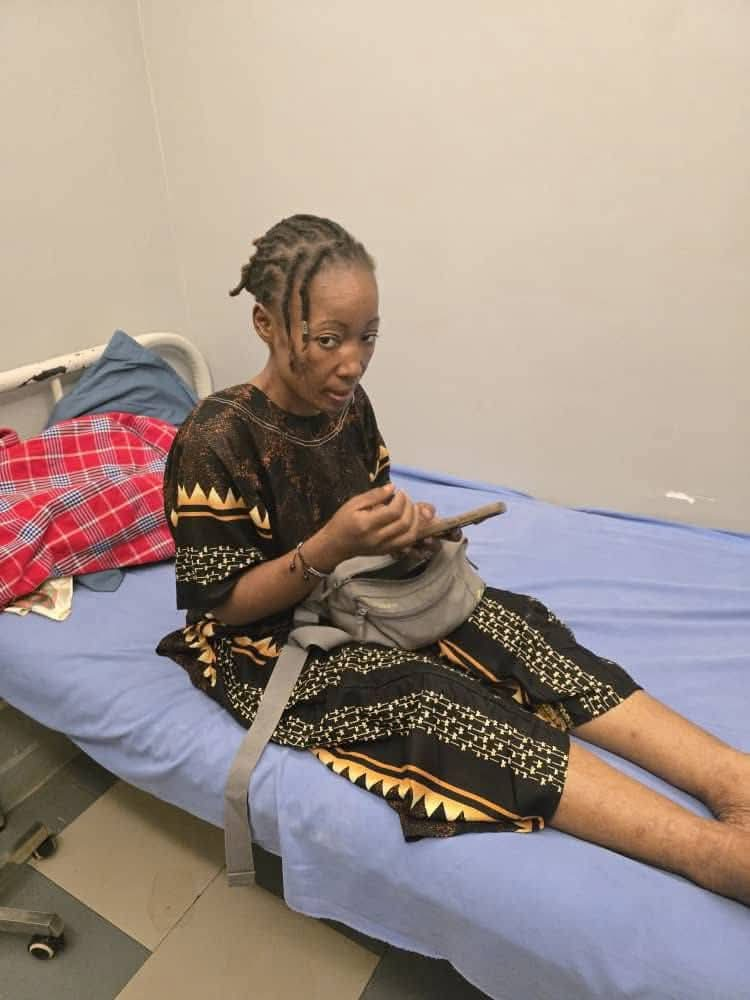
Her troubles dated back to March 30, 2022, when she was abducted in Kampala’s Mbuya area. Witnesses reported that she was taken by security operatives and held at the Chieftaincy of Military Intelligence, a military facility repeatedly associated with cases of torture.
What followed was a period of severe abuse, including sexual violence, which left her with HIV/AIDS. The act that drew this punishment was simple she had played music by Bobi Wine, the opposition politician and musician, on loudspeakers, something the authorities saw as dissent against President Yoweri Museveni’s government.
Despite her release, Marinos chose not to remain silent. She shared her story openly, detailing the violations she had faced, hoping that it would shed light on the broader human rights situation in Uganda.
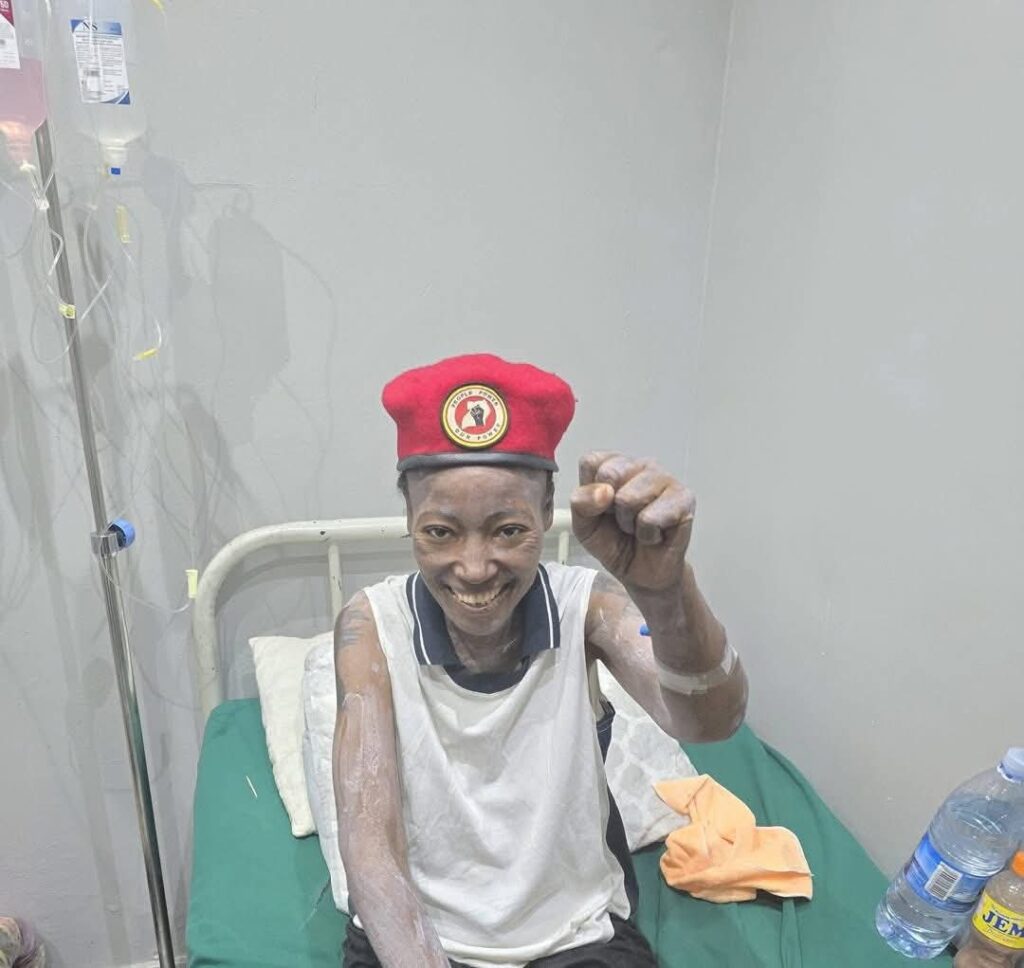
Her bravery, however, brought further danger. She received numerous death threats, and at one point her home was raided, forcing her into exile in Kenya.
Even there, she reported feeling unsafe, with claims of attempts to abduct her again in 2023. Eventually, she sought refuge in a UNHCR camp, where she lived in isolation while receiving treatment for her condition.
Over time, her health weakened, but she continued to draw strength from the solidarity of fellow activists.
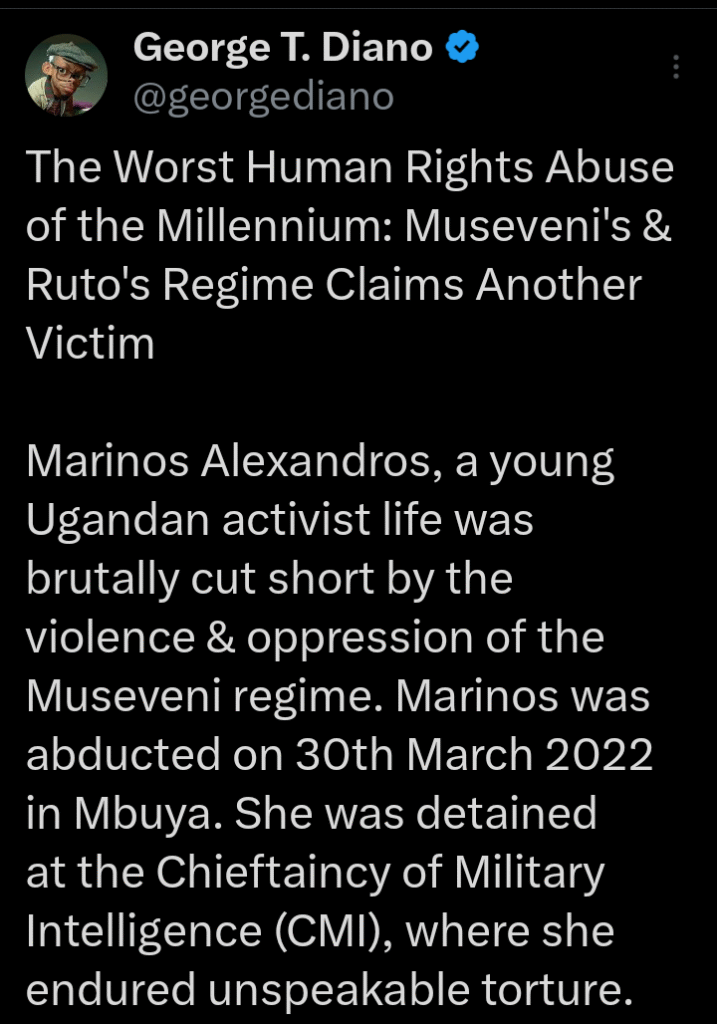
By 2024, her illness had worsened, and the loneliness of exile weighed heavily on her. In the final weeks of her life, Marinos made the difficult decision to return to Uganda, hoping to be close to her family and possibly receive better care.
Sadly, her body was too frail, and she died soon after. Opposition leaders, including Bobi Wine, paid tribute to her, calling her a brave comrade who never gave up on the dream of a freer country.
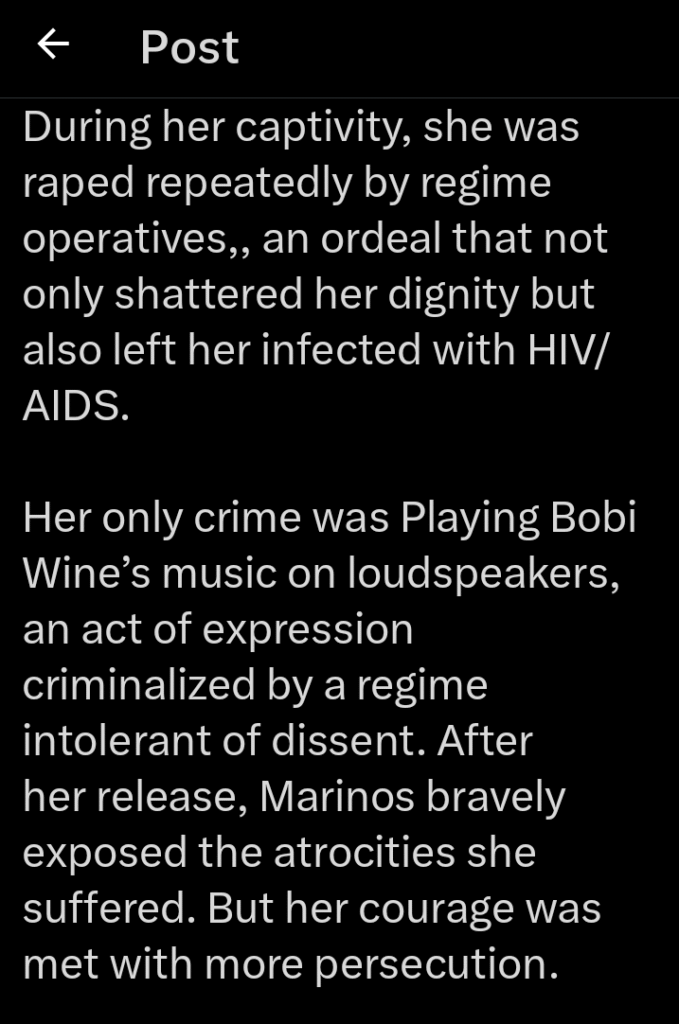
Activists like Jim Spire Ssentongo also shared condolences, pointing to her story as proof of the urgent need to end state brutality.
Her death comes amid a wider pattern of abuse in Uganda, with rights groups documenting arbitrary arrests, enforced disappearances, and violence against government critics. The silence of the authorities over her case has raised concerns about impunity.
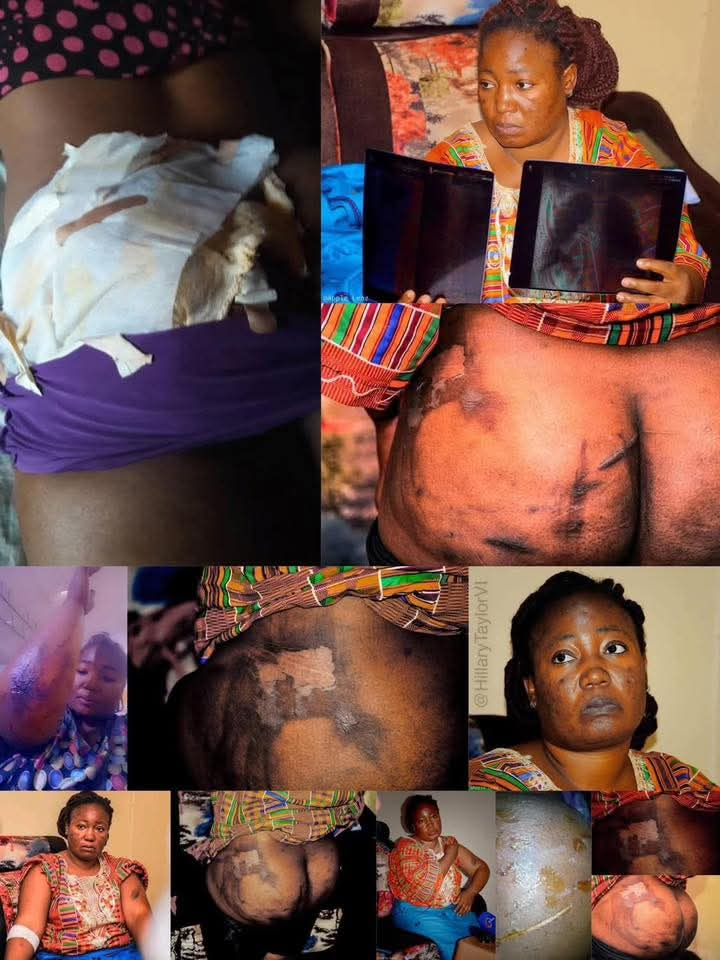
Beyond Uganda, questions have also been raised about Kenya’s role, with reports suggesting attempts by security agents to target her while in Nairobi, such claims highlight regional challenges where political power often overshadows respect for human rights.
For many, Marinos’s passing is not just the loss of a young woman but a national tragedy that underscores the cost of activism. Her story is now a call for accountability, reminding people of the sacrifices made in the fight for justice and freedom. Though her voice is gone, her courage continues to inspire those who believe change is still possible.







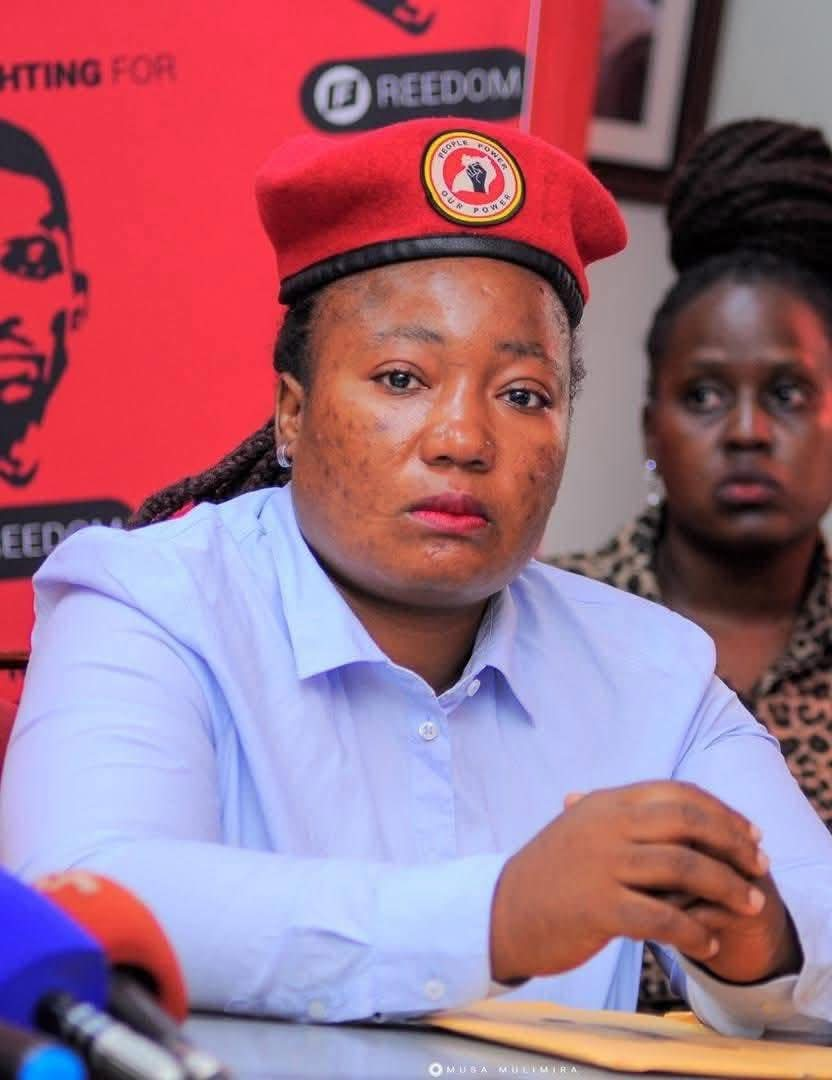













Add Comment